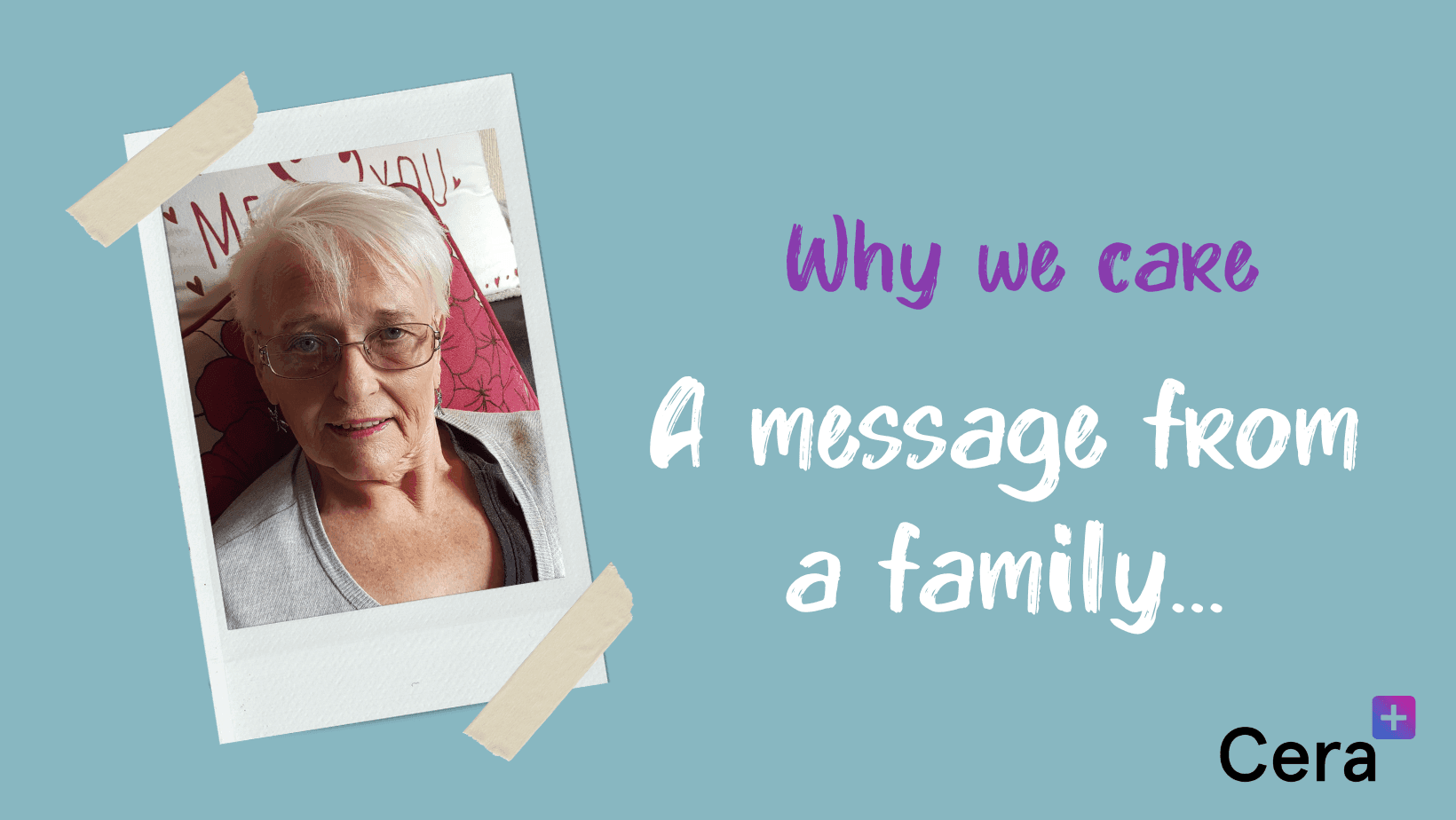5 Myths about working in Social Care
Like with any industry, there are a few misconceptions about working in social care. Below, we discuss the top five in order to help highlight what caring really involves.
1. You need a background in care to get into the sector
You don’t! This myth is probably one of the most common in the care sector. For the majority of Care Assistant jobs, you don’t need any direct experience or qualifications as you will receive all the training you need to become a confident and competent carer during your onboarding and first few months on the job.
If you’re struggling with putting together an application - we’ve written a blog How to Create a Great Care Assistant CV. (Don’t forget with Cera you don’t even need a CV to apply - just a quick form and a few screening questions and you can be on your way to a new job!)
2. It’s all about personal care
Personal care covers a wide range of tasks such as:
- Bathing
- Dressing and undressing
- Helping to use the toilet
- Helping with medicine administration
Although personal care is and will always be an important part of working in social care, there is so much more to a Care Assistant’s day. You could be aiding meal preparation, helping out with household duties and ultimately providing companionship. Our carer’s say that the bond you get with your clients and the reward from the job far outweighs any negatives and all you want to do is help people, so personal care is just part of the job that you get used to very quickly and is so important for their dignity.
While each service user may have different needs, it’s important to remember that not everyone that needs care is old. This means that each and every case will rely on help in different ways - it might be that your support is required more with mental health rather than physical health.
3. There are no opportunities for career progression
Over in our blog What Career Progression is There for Carers, we discuss the doors that being a Care Assistant are able to open whilst working in the social care sector.
One career path could be into nursing. Cera recently launched our nurse training pilot which means those with a Level 3 qualification and experience in the role can become nursing assistants and in the longer term fully qualify as a nurse.
Other routes for career progression could be:
- Care Supervisor
Care Supervisors, like Care Assistants, work with service users. Some of their responsibilities include creating care plans as well as supervising and shadowing care workers.
- Care Coordinators
Care Coordinators are based more within an office setting. Their responsibilities can include putting together care rotas, monitoring and evaluating the care delivered and ensuring all operations are Company and Compliant.
- Registered Managers
Registered Manager’s duties include continually looking to improve how care is administered and delivered in their communities, measuring expenditure, ensuring the budget is maintained and attending regular meetings with all stakeholders to keep abreast of views, developments, opportunities and expectations.
4. Only women are Care Assistants
There’s a definite misconception that all carers are female. This is far from the truth. If you haven’t read our blog A Day in The Life of a Care Assistant, you might want to give that a read! We interviewed Gavin, who started work as a Cera Care Assistant at the start of 2021, and gave a great insight into work/life balance whilst working in social care.
We checked out some facts and figures behind this idea and found that 58% of carers are women whilst 42% are men. It does depend from case to case as service users may have a specific need that influences the gender of carer we provide them with.
5. ‘I’m not cut out for that!’
Working in social care might seem daunting as a new career path and you may feel as though it is unlike anything you have done before. If you’re wondering whether or not you could be a good fit for a Care Assistant role, there are some qualities and personality traits you might already have! These cover:
- Being a great listener
- Feeling confident meeting new people
- Strong communication skills
- Caring nature
- Willingness to learn
You might also want to take a look over How to Become a Care Assistant where we mention in detail the transferable skills that can be helpful when applying for a carer position.
More about working in care

Six Women Who Shaped Home Care in the UK
Did you know that March is Women’s History Month? This is a time to recognise the extraordinary women whose work shaped the world we know today.
Nutrition and Hydration - Essential Care for the Elderly
Good nutrition and hydration is vital for everyone, and it's especially important for elderly individuals.